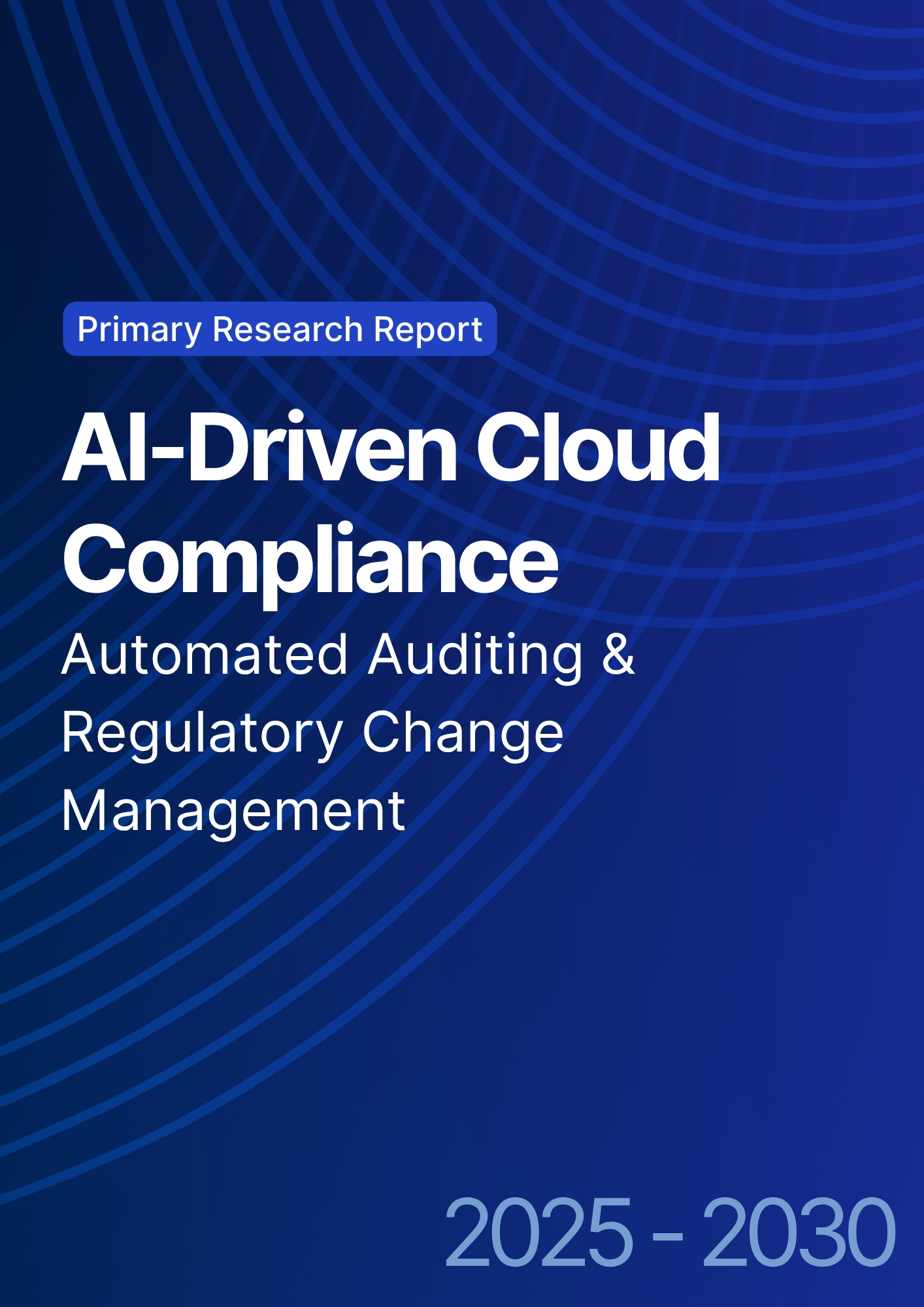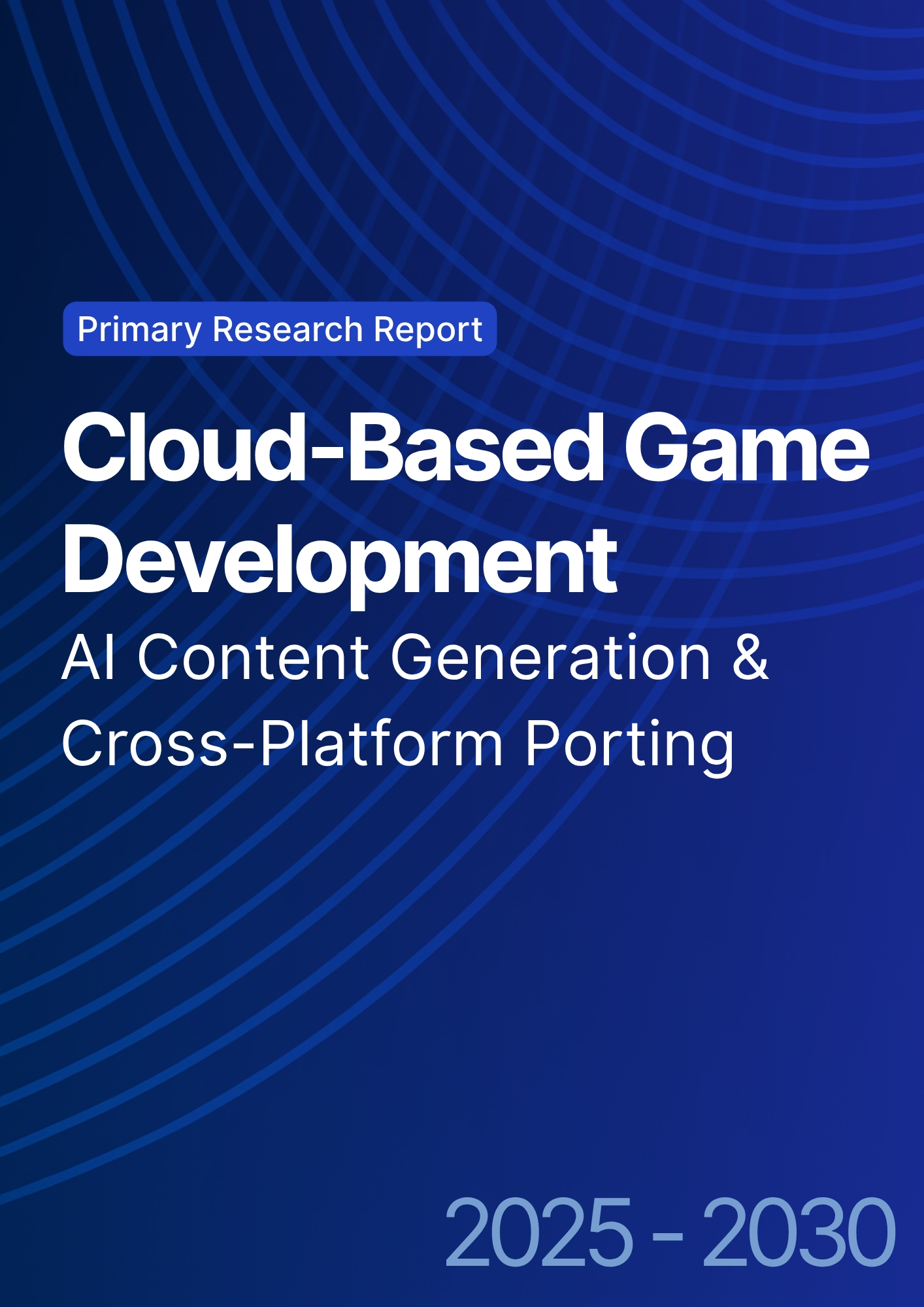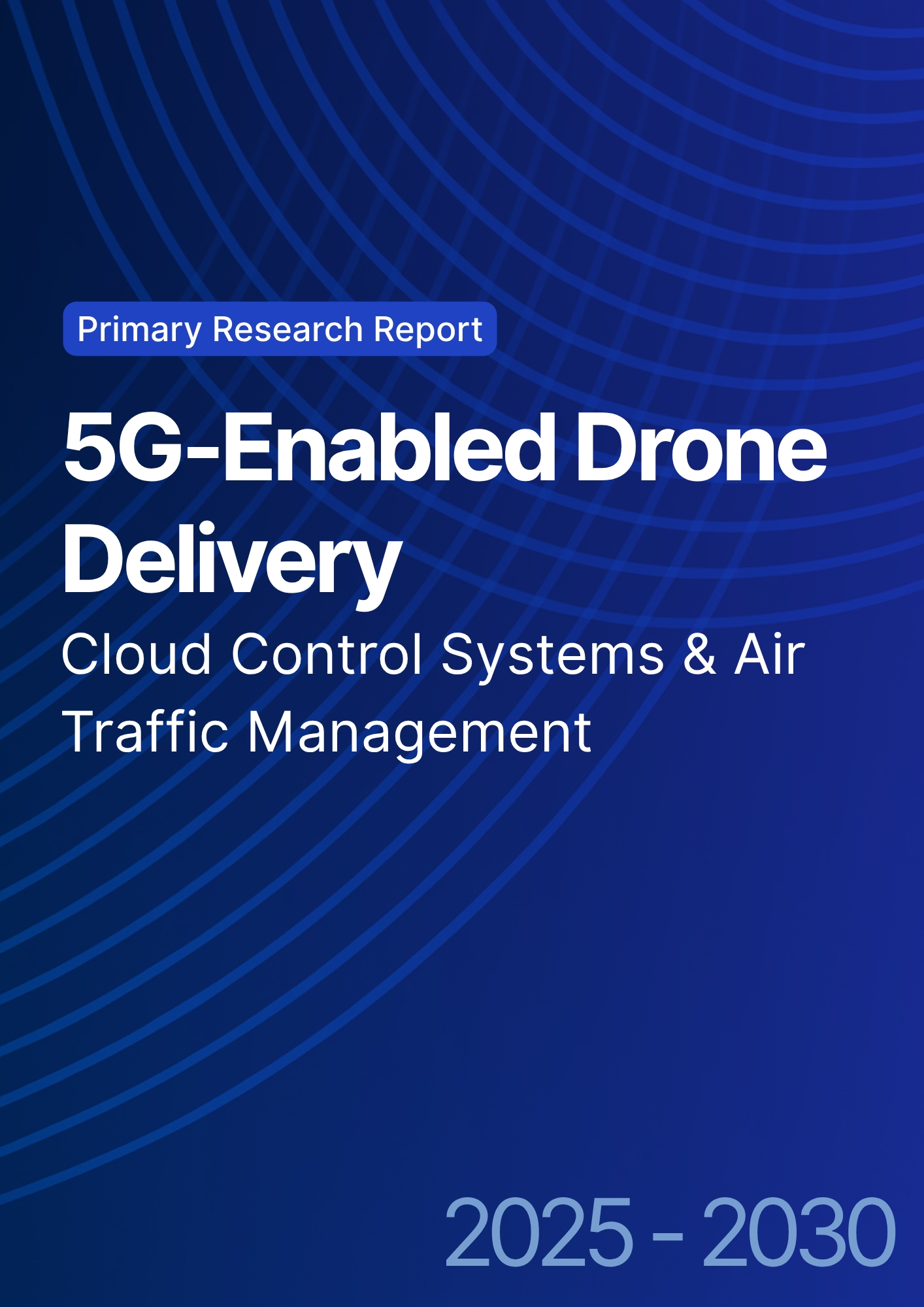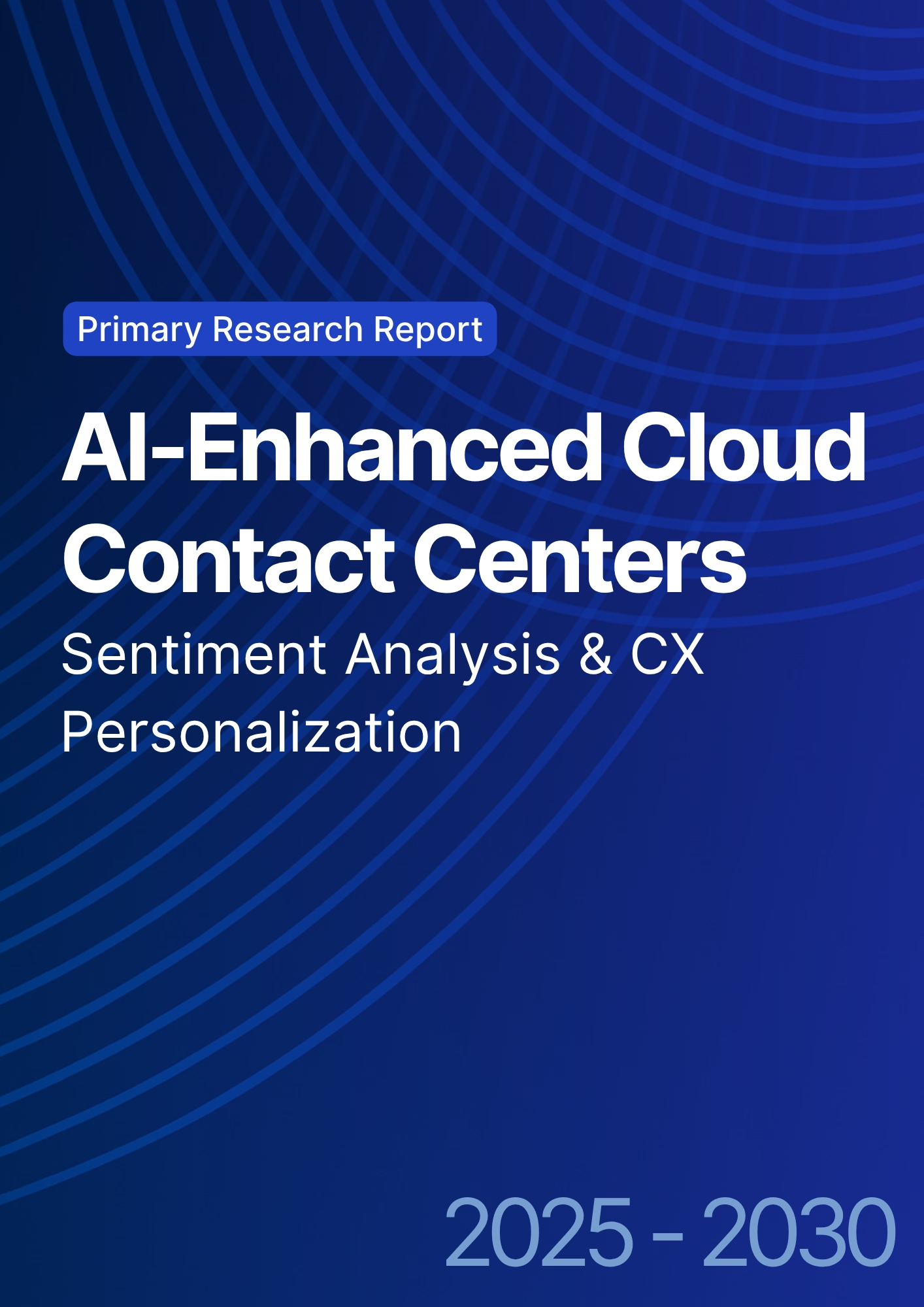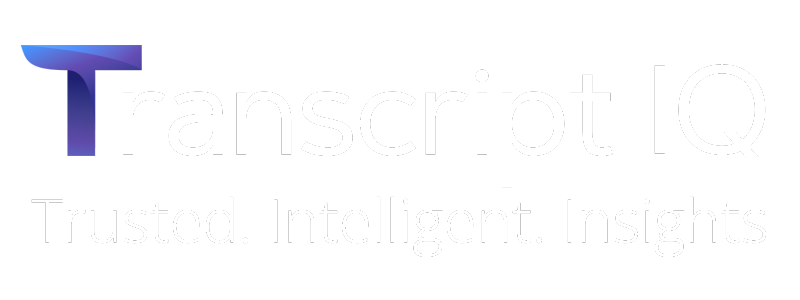

68 Circular Road, #02-01 049422, Singapore
Revenue Tower, Scbd, Jakarta 12190, Indonesia
4th Floor, Pinnacle Business Park, Andheri East, Mumbai, 400093
Cinnabar Hills, Embassy Golf Links Business Park, Bengaluru, Karnataka 560071
Connect With Us
Edge AI for Retail Personalization: Real-Time Analytics & Privacy-Compliant Data Usage
The report details the transformative impact of edge AI technologies in retail, emphasizing real-time analytics, privacy-compliant data usage, and personalized customer experiences. By 2030, over 70% of retailers are projected to use edge AI for in-store personalization, driving a 25–35% boost in conversion rates and optimizing inventory management. Edge AI integrates seamlessly with IoT, supports secure, localized data processing, and helps retailers comply with evolving privacy laws, leading to enhanced consumer trust, operational efficiency, and competitive differentiation in a rapidly digitizing retail landscape.
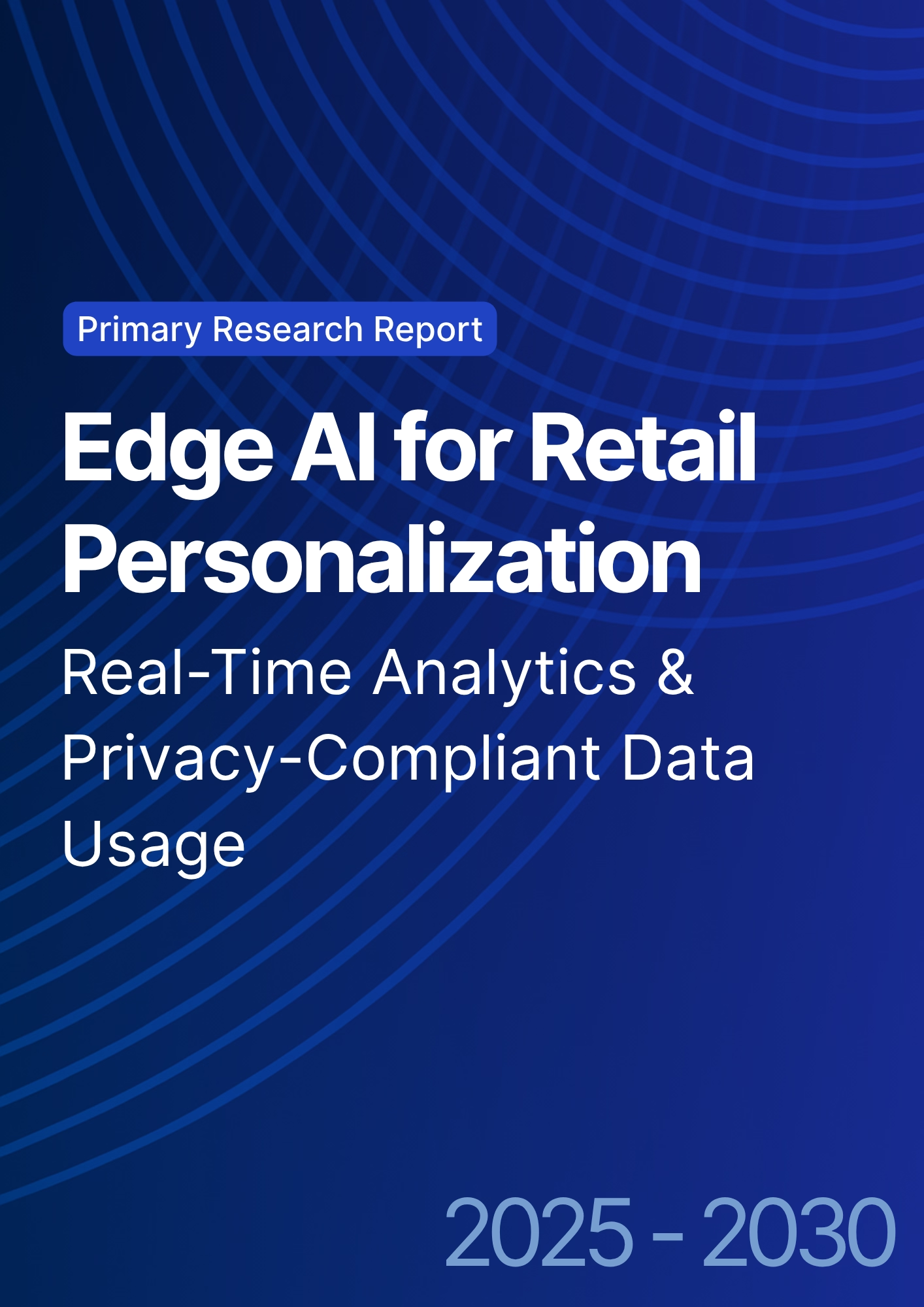
What's Covered?
Report Summary
Key Takeaways
1. Edge AI spend increases from ~US$0.8B to ~US$3.8B by 2030.
2. Adoption rates grow from ~20% to ~67%, enhancing personalization capabilities.
3. Data privacy compliance improves from ~30% to ~80%, driven by regulatory pressure.
4. Cost reduction through AI-powered solutions improves from ~10% to ~35%.
5. ROI on edge AI investments increases from ~8% to ~25%.
6. Customer satisfaction grows from ~50% to ~85%, driven by real-time personalization.
7. Operational downtime reductions of ~25% are expected by 2030.
8. C‑suite dashboard: personalization %, data privacy %, customer engagement %, ROI.

a) Market Size & Share
Edge AI spend for retail personalization in India is expected to grow from ~US$0.8B in 2025 to ~US$3.8B by 2030. The dual‑axis figure shows the increasing spend alongside rising adoption rates, which will reach ~67% by 2030. Share consolidates around personalized marketing, real-time analytics, and data-driven customer engagement platforms. Risks include data privacy concerns, integration challenges, and regulatory delays; mitigations include secure data handling, transparent vendor contracts, and proactive regulatory compliance.

b) Market Analysis
Edge AI adoption for retail in India will see exponential growth by 2030, as companies increasingly turn to real-time analytics for personalized experiences. The bar figure shows KPIs for edge AI adoption, including cost reduction, customer satisfaction, and ROI. By 2030, these KPIs will show substantial improvement, particularly in customer engagement and data privacy compliance.
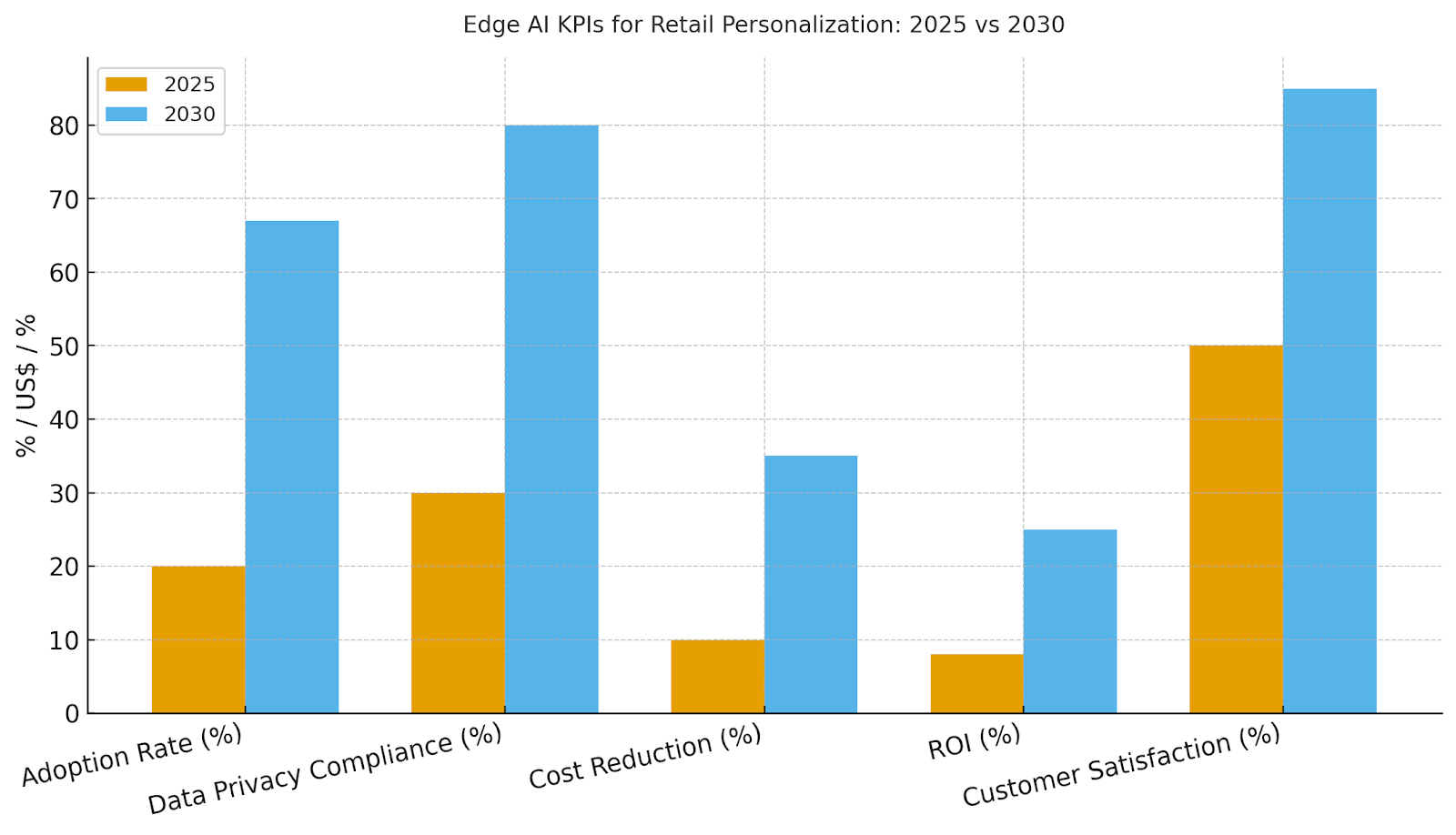
c) Trends & Insights
1) Real-time data processing is transforming retail personalization. 2) Increased demand for privacy-compliant data usage in AI-driven platforms. 3) Data privacy regulations such as GDPR and India’s Personal Data Protection Bill are driving adoption of secure edge AI solutions. 4) AI-driven customer insights are enhancing personalization and engagement in real-time. 5) The shift toward microservices and cloud-native edge AI models is reshaping retail infrastructure.
d) Segment Analysis
Edge AI for retail personalization is widely adopted across segments such as fashion, grocery, electronics, and e-commerce. Fashion brands leverage real-time analytics for personalized recommendations, while grocery retailers optimize inventory and customer experiences. E-commerce platforms are adopting edge AI for real-time pricing and personalized promotions.
e) Geography Analysis
By 2030, the largest share of edge AI spend in India will be in retail, with approximately ~40% of the total market share. E-commerce companies, followed by brick-and-mortar retailers, will be leading adoption of edge AI solutions, leveraging real-time analytics and personalization tools.
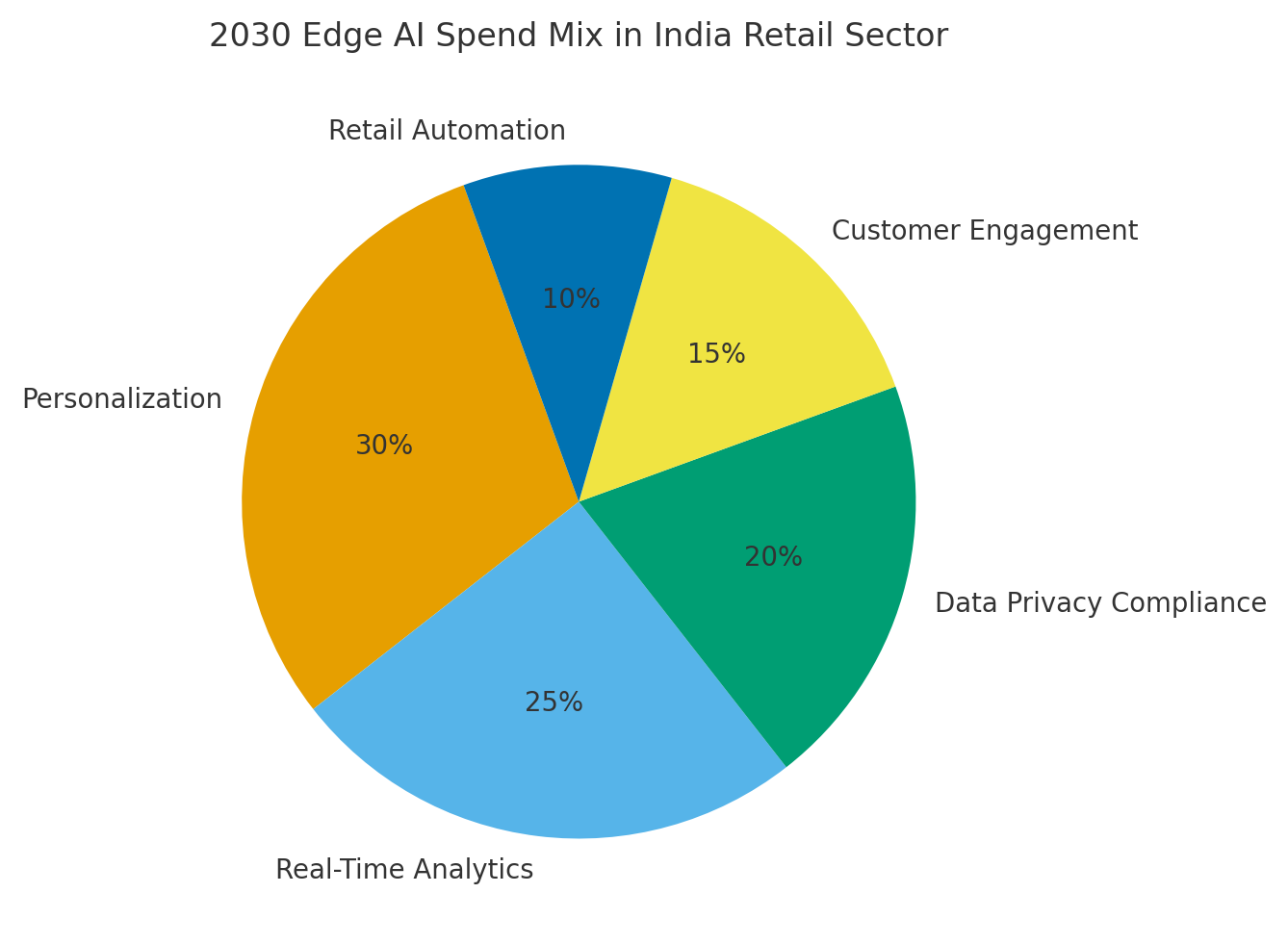
f) Competitive Landscape
Leading vendors in edge AI for retail include AWS, Microsoft, and Google Cloud. Specialized vendors like DataRobot and Clarifai are also emerging, providing customizable AI-driven solutions for personalization. Differentiators: (1) secure, privacy-compliant AI models, (2) seamless integration with retail platforms, (3) advanced real-time analytics, and (4) customer engagement tools. Procurement guidance: prioritize scalability, security, and privacy compliance.
Report Details
Proceed To Buy
Want a More Customized Experience?
- Request a Customized Transcript: Submit your own questions or specify changes. We’ll conduct a new call with the industry expert, covering both the original and your additional questions. You’ll receive an updated report for a small fee over the standard price.
- Request a Direct Call with the Expert: If you prefer a live conversation, we can facilitate a call between you and the expert. After the call, you’ll get the full recording, a verbatim transcript, and continued platform access to query the content and more.


68 Circular Road, #02-01 049422, Singapore
Revenue Tower, Scbd, Jakarta 12190, Indonesia
4th Floor, Pinnacle Business Park, Andheri East, Mumbai, 400093
Cinnabar Hills, Embassy Golf Links Business Park, Bengaluru, Karnataka 560071
Request Custom Transcript
Related Transcripts
$ 1350


68 Circular Road, #02-01 049422, Singapore
Revenue Tower, Scbd, Jakarta 12190, Indonesia
4th Floor, Pinnacle Business Park, Andheri East, Mumbai, 400093
Cinnabar Hills, Embassy Golf Links Business Park, Bengaluru, Karnataka 560071





